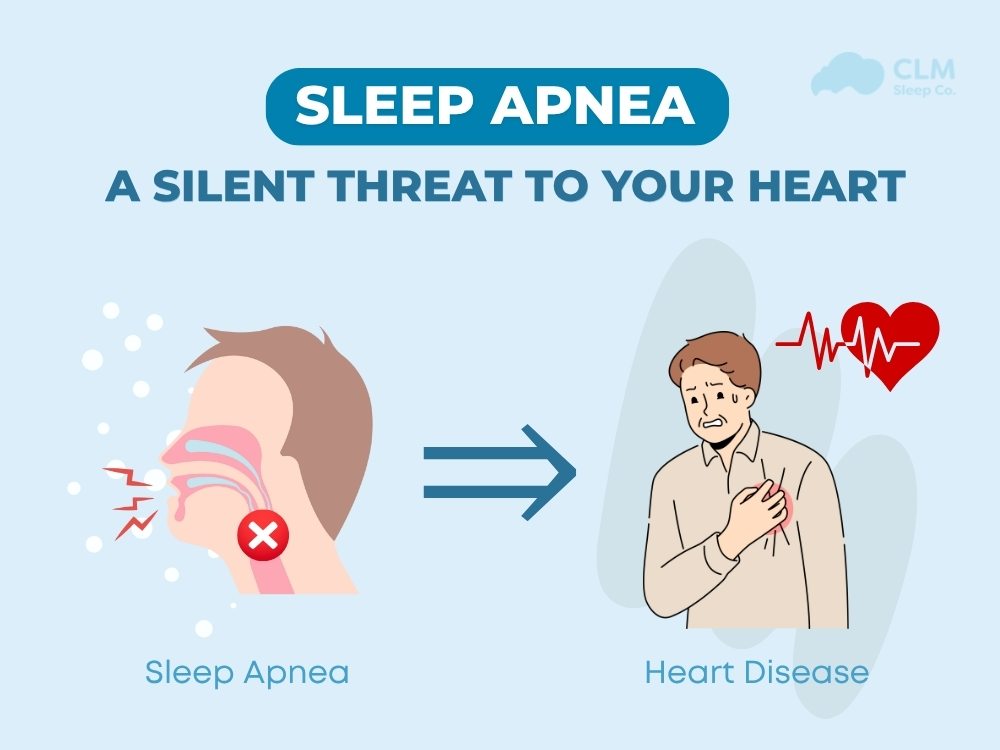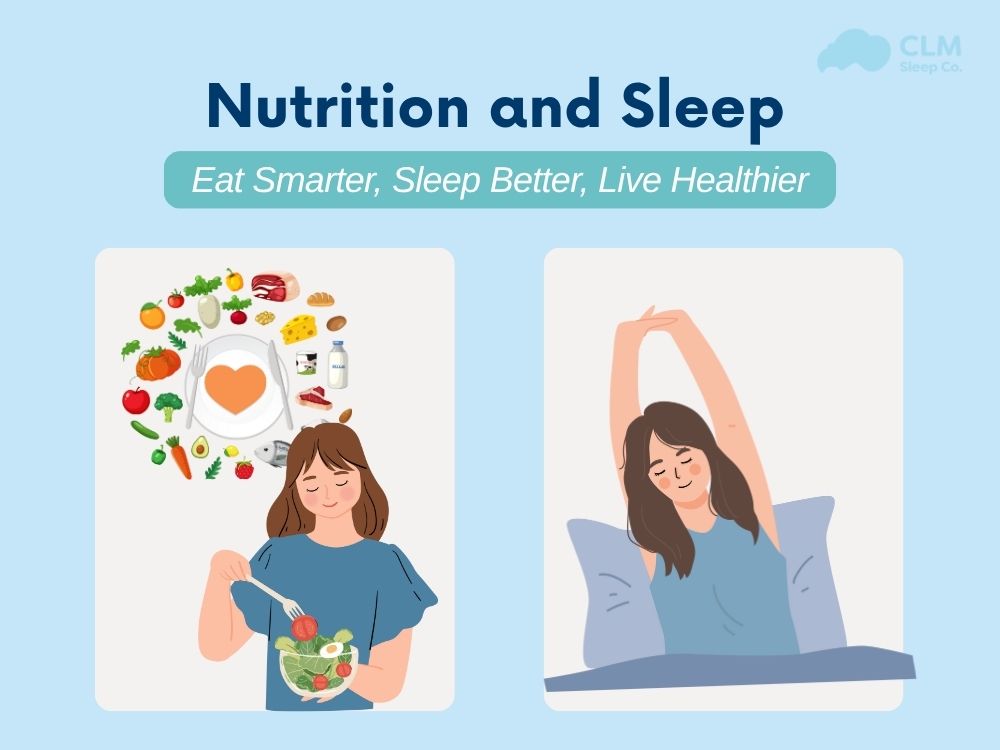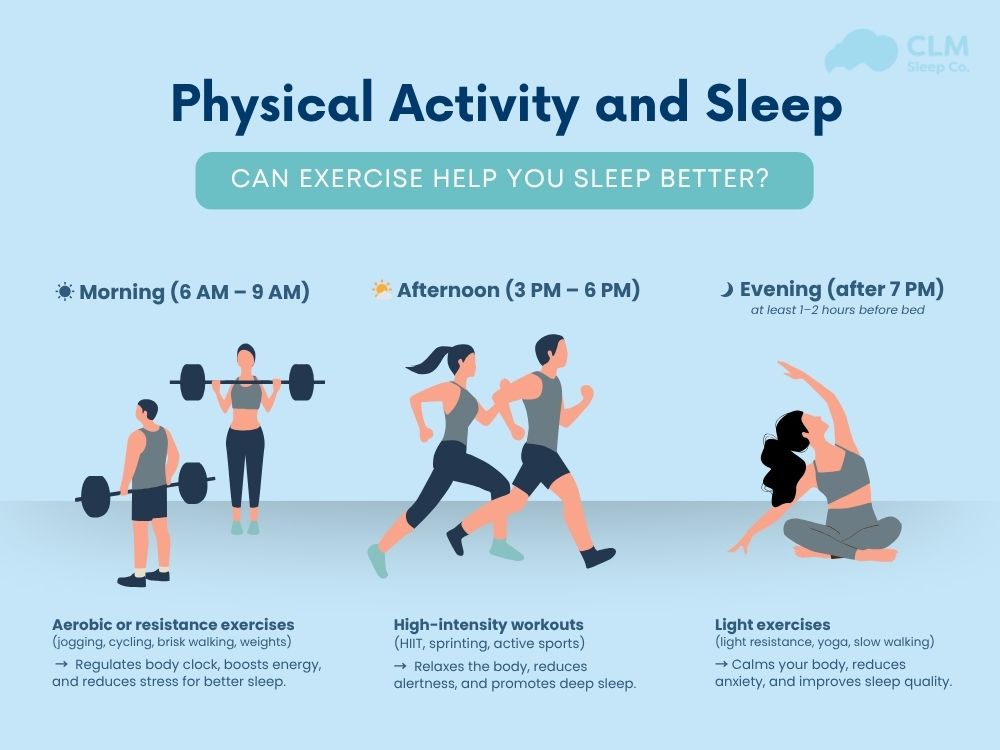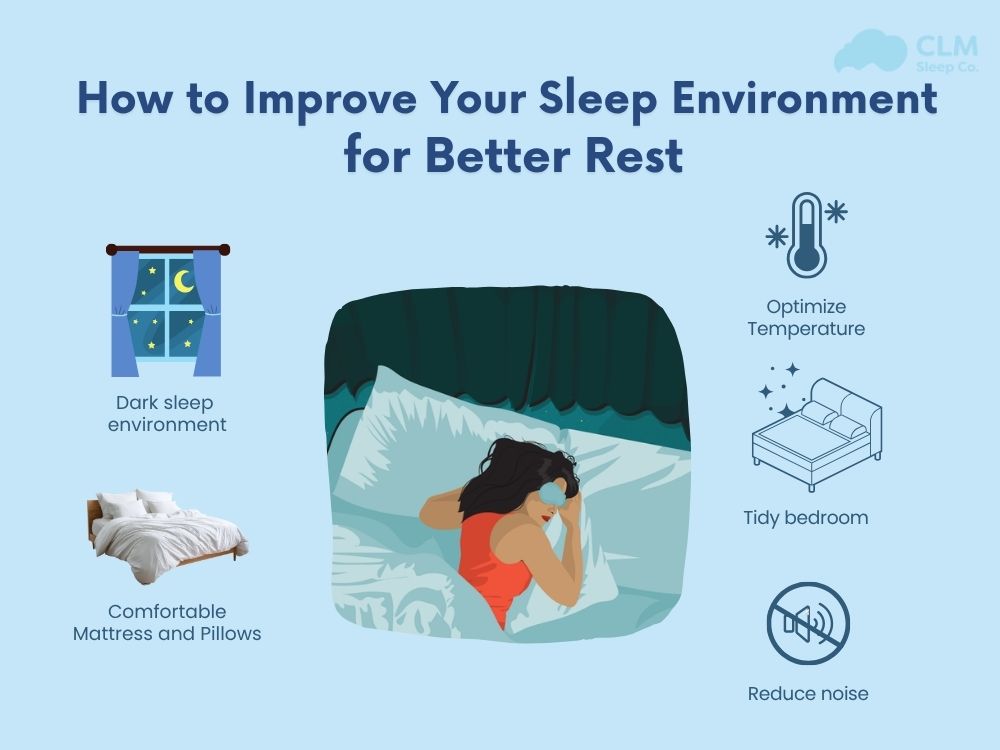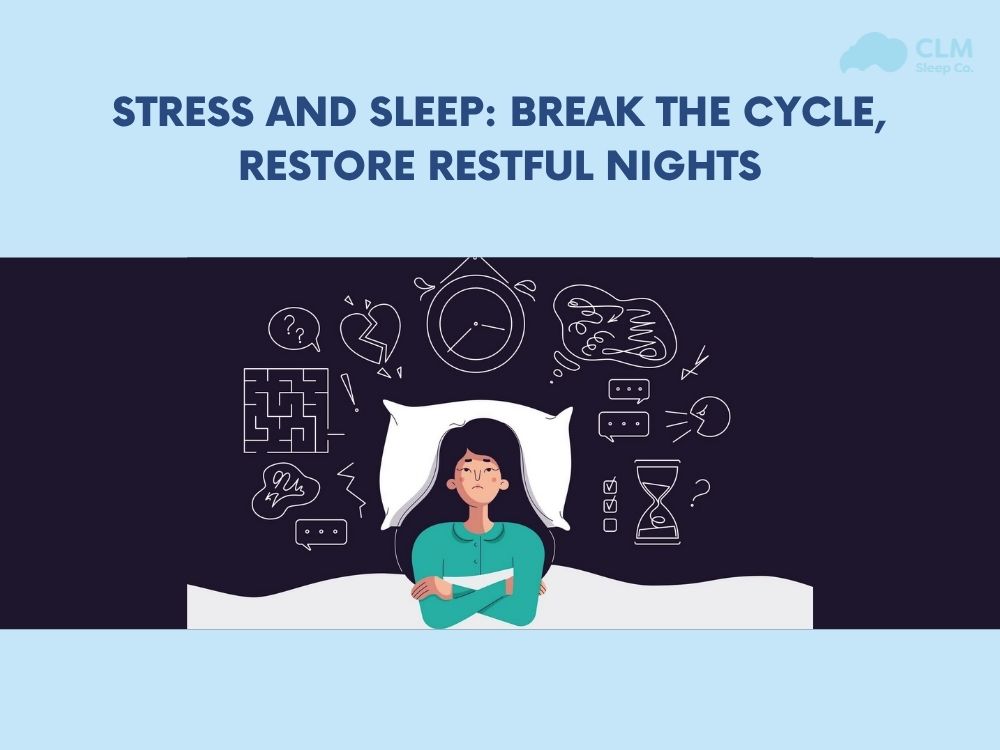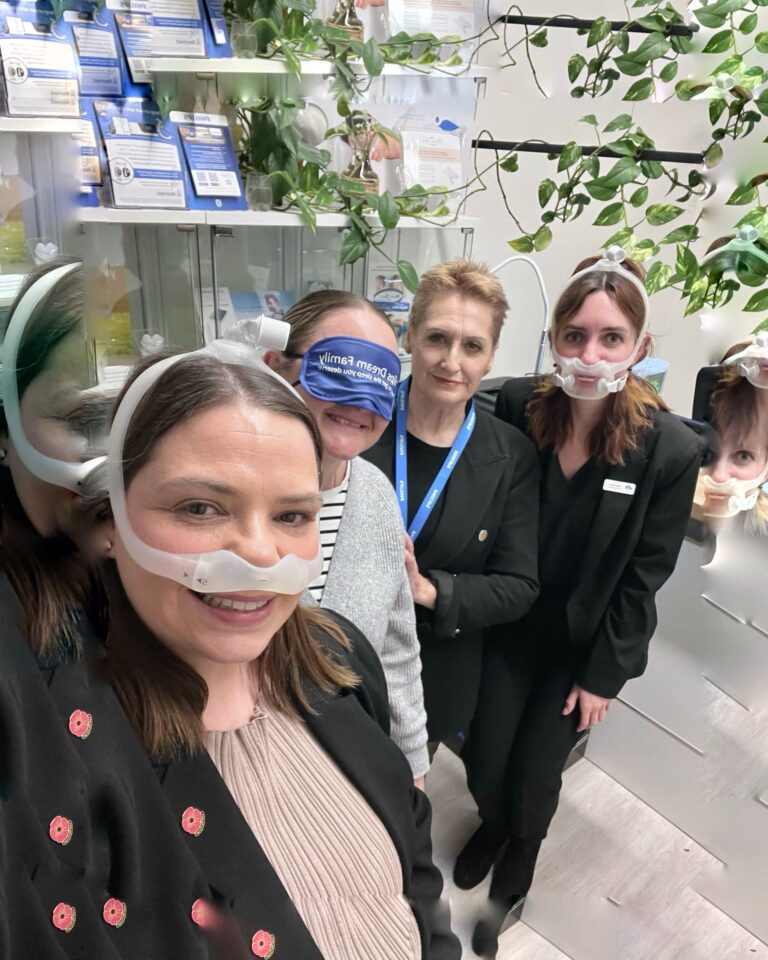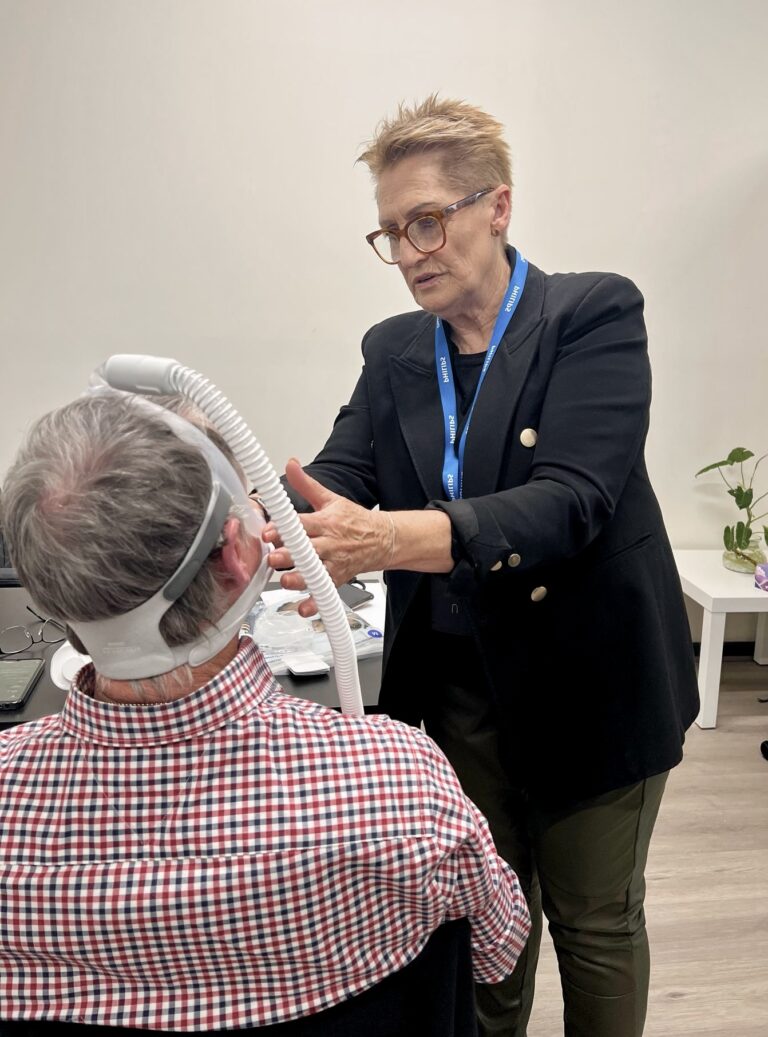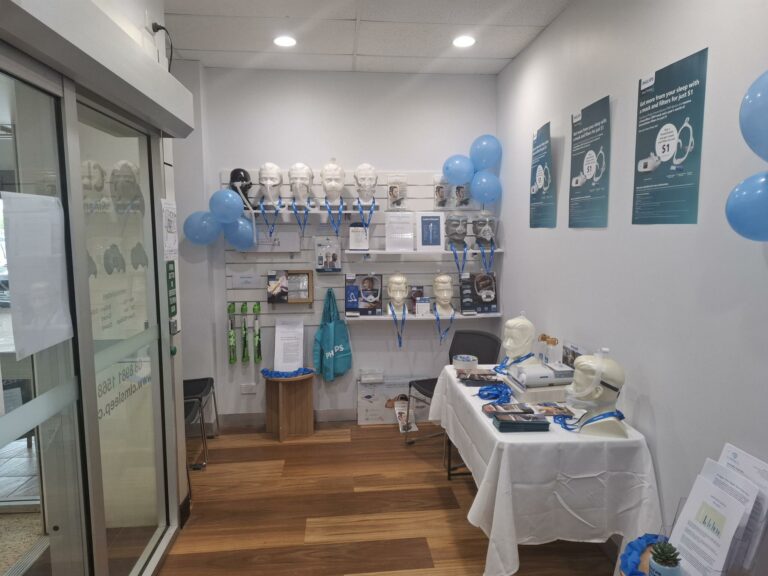Did you know that sleep apnea and heart disease are not just two separate health issues? In reality, they are closely linked and silently harm the hearts of patients every night for those who suffer from sleep apnea. At CLM Sleep, we invite you to explore the critical link between sleep apnea and heart disease and discover effective ways to protect your cardiovascular health and that of your loved ones.
Sleep Apnoea: The Silent Threat to Your Heart
What is sleep apnea? How is the severity of sleep apnoea determined?
Sleep apnea (sleep apnoea) is a serious sleep disorder marked by repeated pauses in breathing during sleep, lasting from a few seconds to several minutes. This condition occurs repeatedly at night and affects millions of people around the world. Some common signs to recognize are loud snoring, sudden awakening due to choking, daytime sleepiness, and morning headaches.
To measure the severity of the condition, doctors use the Apnea Hypopnea Index (AHI), which tracks the numbers of apneas (complete pauses in breathing), hypopneas (partial reductions in airflow) per hour of sleep. Based on AHI, sleep apnea is classified into three levels: mild, moderate, and severe. However, the AHI is not the only index that shows how sleep apnea can affect the heart. The impact of this condition is also influenced by the frequency and duration of apneas, the level of oxygen desaturation, and the rate of recovery. Accurately determining the level will help patients have a more effective and appropriate treatment direction.
Read more: Identifying Sleep Apnea Symptoms
How does sleep apnea affect the heart?
Sleep apnea and heart disease are closely related, putting significant pressure on the patient’s health. Every time sleep apnea occurs, your body will produce stress hormones, increasing heart rate and putting pressure on the cardiovascular system.
If this condition continues in the long term, it can become a leading cause of heart disease. This strain can lead to several cardiovascular issues including: high blood pressure, an increased risk of arrhythmias, coronary artery disease, a higher likelihood of stroke and even premature death in younger individuals.
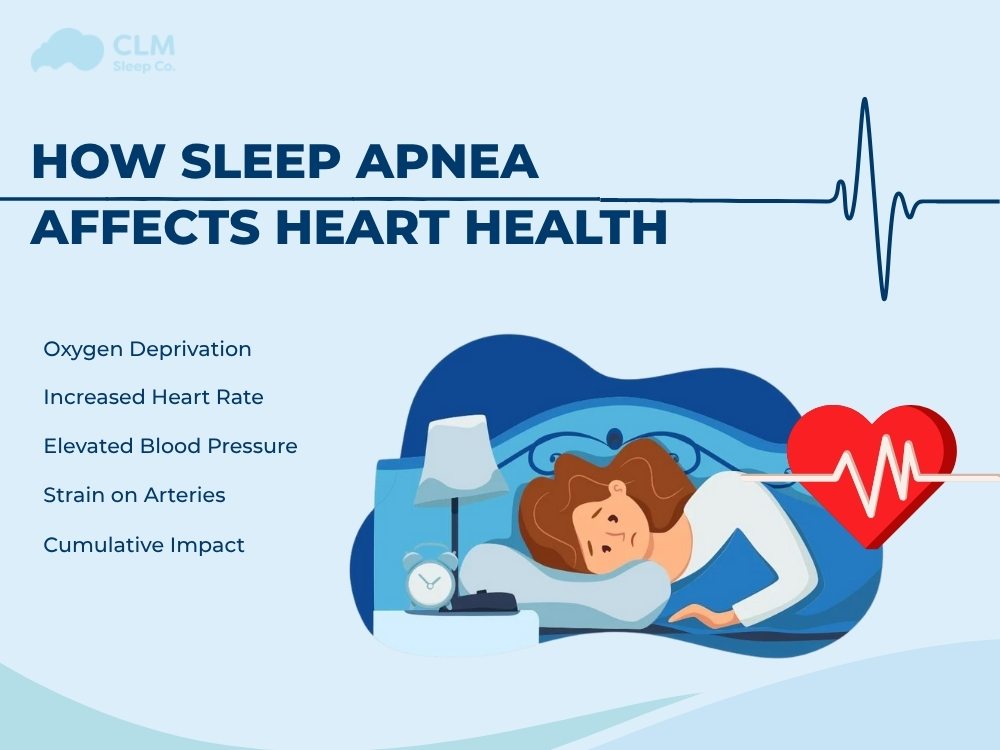
Common Cardiovascular Issues Associated with Sleep Apnea
CLM Sleep works with readers to study in detail some of the most common cardiovascular issues related to sleep apnea, along with the mechanisms causing the disease and specific risks to cardiovascular health:
- High blood pressure: is the most common cardiovascular issue related to sleep apnea. Repeated decreases in blood oxygen cause blood vessels to constrict, leading to high blood pressure. In the long term, this puts excessive pressure on the heart and can lead to heart failure or myocardial infarction.
- Arrhythmias: Sleep apnoea is a significant contributor to arrhythmias, especially atrial fibrillation (AF). The lack of oxygen during apnea episodes disrupts the normal electrical activity of the heart, causing irregular heartbeats. This can lead to more serious complications such as stroke or heart failure.
- Coronary Artery Disease: Intermittent oxygen deprivation related to sleep apnea can lead to the formation of plaques in the coronary arteries, narrowing the arteries and restricting blood flow to the heart. At that time, the heart was not functioning effectively in pumping blood, severely affecting overall health and quality of life.
- Heart Failure: Prolonged periods of oxygen deprivation and elevated heart rates can damage the heart muscle, leading to heart failure. Obstructive sleep apnea and cardiovascular disease lead to ineffective blood pumping, affecting the supply of oxygen and nutrients to the body.
- Increased Risk of Stroke and Premature Death: Research shows a clear link between sleep apnoea and an increased risk of stroke. The impact of this condition on blood pressure and oxygen levels can lead to the formation of blood clots or arterial damage, resulting in a stroke. In addition, this may also be one of the diseases causing an increase in the number of premature deaths in young people.
Can sleep apnoea harm the heart even when the AHI isn’t high?
The Apnea-Hypopnea Index (AHI) measures the average number of apnoea and hypopnoea events that occur each hour during sleep. This is an important clinical indicator used to diagnose and determine the severity of sleep apnea. A higher AHI score indicates a more severe form of the disorder.
However, this index does not fully reflect all the effects of sleep apnea on the cardiovascular system. To determine the impact of sleep apnea on cardiovascular health, it is not only based on the severity of sleep apnea ( AHI). It also depends on:
- Duration of individual apnoea events;
- Hypoxemia (SpO₂) – Depth and severity of oxygen desaturation;
- Speed and completeness of oxygen recovery.
Therefore, even when the AHI index is low, individuals with prolonged apnea or significantly reduced oxygen saturation still have a risk of heart disease.
How to Reduce the Impact of Sleep Apnoea on the Heart
Managing sleep apnoea is crucial for minimizing its impact on heart health. The following are some measures to help mitigate related risks that patients can implement to improve this condition:
- Early Diagnosis and Regular Follow-up: Early detection of sleep apnea plays an important role in preventing cardiovascular complications. Regular follow up with a healthcare provider can help monitor the severity of the condition and ensure effective treatment. You can choose to conduct sleep studies such as in-lab sleep study, home sleep apnea test
- CPAP Therapy: This is the most advanced and popular treatment method for obstructive sleep apnea today. It helps keep the airway open by delivering a constant stream of air through a mask, preventing breathing pauses during sleep. CPAP therapy helps improve oxygen levels in the blood, reduce blood pressure, and thereby decrease the risk of cardiovascular diseases.
- Lifestyle Changes: Maintaining a healthy lifestyle is always a good therapy, significantly supporting the limitation of the negative impact of sleep apnea on the heart. Change your diet, control your weight, limit stimulants such as tobacco and alcoholic beverages, and instead engage in physical activities to improve health.
- Managing Cardiovascular Risk Factors: Managing risk factors such as high blood pressure, high cholesterol and diabetes can significantly reduce the impact of sleep on the heart. The use of medication may be necessary in some cases; however, lifestyle changes remain the core factor.
Read more: Sleep Apnea Self-Care: Tips for Managing Your Condition
Best Sleep Study Type for Sleep Apnea and Heart Disease
To accurately assess the severity of sleep apnea and heart health, its potential impact on cardiovascular health, several types of sleep studies are available:
Level 1 (Polysomnography – PSG):
This is in lab overnight sleep study, also known as polysomnography in the laboratory, is conducted in a sleep lab with continuous overnight monitoring. It monitors brain activity, heart rate, oxygen levels and other vital signs. PSG provides a detailed picture of how sleep apnoea affects your body and cardiovascular system.
This method is particularly suitable for individuals with complex symptoms or when home sleep tests do not provide enough data for an accurate diagnosis.
Level 2 (Home sleep apnea test – HSAT):
The sleep apnea test at home is a simplified version of PSG, this test can be performed at home. It’s focusing on measuring breathing rate, oxygen levels, and heart rate while sleeping. While less detailed than PSG, HSAT is still effective for diagnosing obstructive sleep apnoea in many cases.
Why level 3 & 4 are not recommended:
Level 3 and 4 sleep studies have lower detail and often do not provide sufficient information necessary to assess, identify, and ensure the impact of sleep apnea on cardiovascular health.
When should you see a sleep therapist?
Life is becoming increasingly busy and the pressure of work on people is rising in the digital age. To ensure the quality of sleep brings a more comfortable and healthier life. When you notice the following symptoms, you should immediately see a sleep therapy specialist for evaluation and treatment of sleep apnea:
- Loud – persistent snoring
- Periods of interrupted breathing during sleep
- Excessive daytime sleepiness of fatigue
- High blood pressure
- Arrhythmia, frequently feeling anxious, palpitations
Conclusion
Sleep apnea is not just a sleep disorder – it’s a serious condition that can significantly affect heart health. By understanding the relationship between sleep apnoea and heart disease, seeking early diagnosis and implementing effective treatments like CPAP therapy can significantly reduce the risk of this disease for each individual. I hope the article from CLM sleep brings value and is useful for readers.
Reference
- Wang X, et al. Obstructive sleep apnea and risk of cardiovascular disease and all‑cause mortality: a meta‑analysis of prospective cohort studies. International Journal of Cardiology. 2013 Nov 5;169(3):207-14. doi: 10.1016/j.ijcard.2013.08.088. PMID: 24161531
- Rajachandran M, et al. Sleep apnea and cardiovascular risk.Current Opinion in Cardiology. 2023 Sep 1;38(5):456-461. doi: 10.1097/HCO.0000000000001065. PMID: 37382140
- Polecka A, Olszewska N, Danielski Ł, Olszewska E. Association between Obstructive Sleep Apnea and Heart Failure in Adults‑A Systematic Review. Journal of Clinical Medicine. 2023 Sep 22;12(19):6139. doi: 10.3390/jcm12196139. PMID: 37834783.
